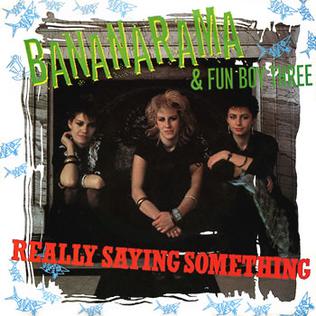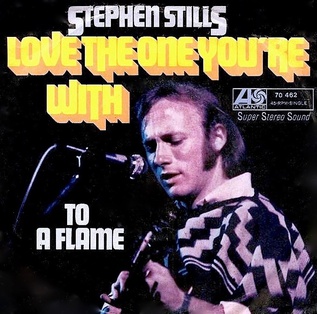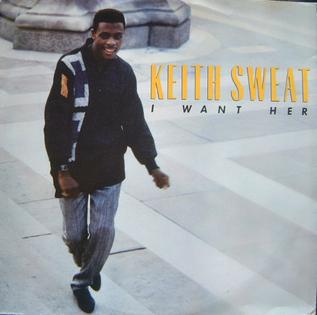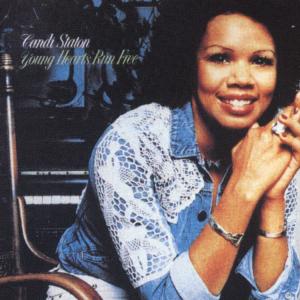Related Research Articles

"I Can't Get Next to You" is a 1969 number-one single recorded by The Temptations and written by Norman Whitfield and Barrett Strong for the Gordy (Motown) label. The song was a number-one single on the Billboard Top Pop Singles chart for two weeks in 1969, from October 18 to October 25, replacing "Sugar, Sugar" by The Archies and replaced by "Suspicious Minds" by Elvis Presley. The single was also a number-one hit on the Billboard Top R&B Singles for five weeks, from October 4 to November 1, replacing "Oh, What a Night" by The Dells, and replaced by another Motown song, "Baby I'm For Real" by The Originals.
Colonel Abrams was an American musician, singer, songwriter, dancer and actor.

"Let's Go Crazy" is a 1984 song by Prince and The Revolution, from the album Purple Rain. It was the opening track on both the album and the film Purple Rain. "Let's Go Crazy" was one of Prince's most popular songs, and was a staple for concert performances, often segueing into other hits. When released as a single, the song became Prince's second number-one hit on the Billboard Hot 100, and also topped the two component charts, the Hot R&B/Hip-Hop Songs and Hot Dance Club Play charts, as well as becoming a UK Top 10 hit. The B-side was the lyrically controversial "Erotic City". In the UK, the song was released as a double A-side with "Take Me with U".

"Until You Come Back to Me " is a song written by Morris Broadnax, Clarence Paul, and Stevie Wonder. The song was originally recorded by Stevie Wonder in 1967, but his version was not released as a single and did not appear on an album until 1977's anthology Looking Back. The best-known version of this song is the 1973 release by Aretha Franklin, who had a million-selling top 10 hit on Billboard charts. The song reached No. 1 on the R&B chart and No. 3 on the Hot 100 chart in 1974. It became an RIAA Gold record.

"He Was Really Sayin' Somethin' is a soul song written by Motown songwriters Norman Whitfield, William "Mickey" Stevenson, and Edward Holland, Jr. in 1964. The song is notable in both a 1964 version by American Motown girl group the Velvelettes, and a 1982 hit version by British girl group Bananarama.

"Love the One You're With" is a song by folk rock musician Stephen Stills. It was released as the lead single from his debut self-titled studio album in November 1970. The song, inspired by a remark Stills heard from musician Billy Preston, became his biggest hit single, peaking at No. 14 on the Billboard Hot 100 in early 1971. David Crosby and Graham Nash, Stills' fellow members of Crosby, Stills & Nash, provide background vocals on the song. The song was also covered by a number of artists, notably the Isley Brothers, The Meters, Bucks Fizz and Luther Vandross.

"It Only Takes a Minute" is a 1975 song by Tavares. The song was the group's only top-10 pop hit in the United States, peaking at number 10, and their second number one song on the American soul charts. On the US Disco chart, "It Only Takes a Minute" spent five weeks at number two and was the first of four entries on the chart. The song was subsequently covered by Jonathan King performing as 100 Ton and a Feather in 1976 and by boy band Take That in 1992.

"Girlfriend" is a song recorded by American singer Pebbles for her 1987 self-titled debut studio album. Written and produced by L.A. Reid and Babyface, "Girlfriend" was released as the album's lead single in September 1987, by the MCA label.

"I Want Her" is a song by American R&B singer Keith Sweat. As the first single from his debut album, Make It Last Forever, it reached number five on the Billboard Hot 100 and number one on the Hot R&B/Hip-Hop Singles & Tracks chart for three weeks. and became the most successful number one single of 1988 on the Billboard Hot R&B chart. This was one of the earliest new jack swing songs to reach No. 1 on the R&B charts and since then it has become one of the genre's templates, having its sparse lyric delivery inspired Guy, Abstrac and Whistle all in that order. "I Want Her" also peaked at number 38 on the dance chart. The song topped the R&B Billboard Year-End chart for 1988. It was ranked number 6 on complex.com's list of 25 best new jack swing songs of all time.

"Can You Stand the Rain" is a ballad by R&B/pop group New Edition. The song was released on December 13, 1988 by MCA Records as the third single from their fifth studio album, Heart Break.

"Whatcha Gonna Do?" is a song by American rock group Pablo Cruise. This song was written by David Jenkins and Cory Lerios, two of the band's members. "Whatcha Gonna Do?" was a track from their album A Place in the Sun in 1977.

"If I Say Yes" is a 1986 single by British pop group Five Star, and was the follow-up to their biggest-ever UK single, the #2 ranked "Rain or Shine". It was the fourth release from the group's Silk & Steel album. A 3:43 remixed version of the song, which was the version released in the U.S., appeared on the group's 1989 Greatest Hits album.

Colonel Abrams is the self-titled debut studio album by American musician Colonel Abrams, released in 1985 through MCA Records.
"You Used to Hold Me So Tight" is a song written and produced by Jimmy Jam and Terry Lewis for American singer Thelma Houston's 1984 album Qualifying Heat. Released as a single in mid-1984, "You Used to Hold Me So Tight" became a success on the U.S. charts, peaking at number seven on the Hot Dance Club Play chart. Although it missed the Billboard Hot 100, the song peaked at number thirteen on the Hot Black Singles chart.

"Young Hearts Run Free" is a disco song written by David Crawford and originally recorded by American soul singer Candi Staton in 1976.

"Do It " is a popular song by funk group B. T. Express, written by songwriter Billy Nichols.

"Trapped" is a song by American musician Colonel Abrams, released in 1985 as the first single from his self-titled debut album. It has since become known as Abrams' signature song and still receives airplay on dance radio stations in the UK and the US.
"Slow Down" is the 11th single by English R&B band Loose Ends from their third studio album, Zagora. It was released in September 1986 by MCA Records and produced by Loose Ends' longtime collaborator Nick Martinelli. The single was the group's second and last number one on the Soul Singles chart.

"Hang On in There Baby" is a song written by American musician Johnny Bristol and arranged by H. B. Barnum as the title track from his first album. It was released as a single in 1974, reaching No. 8 on the U.S. Hot 100 and No. 2 on the U.S. R&B chart. In the UK it reached No. 3.

"I'm Gonna Tear Your Playhouse Down" is a song written by Memphis-based songwriter Earl Randle, and first recorded in 1972 by soul singer Ann Peebles. The song was also a hit in 1984 for English singer Paul Young.
References
- ↑ Whitburn, Joel (2004). Hot Dance/Disco: 1974-2003. Record Research. p. 16.
- ↑ Whitburn, Joel (2004). Top R&B/Hip-Hop Singles: 1942-2004. Record Research. p. 22.
- ↑ "Official Singles Chart Top 100". Official Charts Company. Retrieved February 3, 2019.
- ↑ "Colonel Abrams Chart History (Hot R&B/Hip-Hop Songs)". Billboard. Retrieved February 3, 2019.